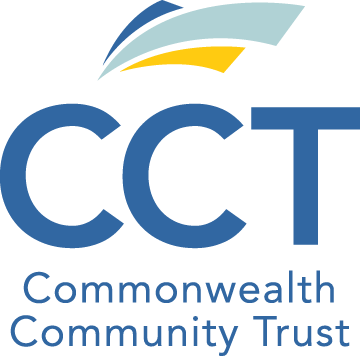ABLE FAQs
ABLE Frequently Asked Questions
The
Stephen Beck, Jr., Achieving a Better Life Experience Act (ABLE Act), enacted on December 19, 2014, allows an eligible individual with special needs to have tax-free savings account without jeopardizing his or her Medicaid and SSI eligibility. This new savings tool, modeled after the 529 college savings plans, allows disbursements, including earnings from the account to pay for qualified expenses.
-
Who is eligible for an ABLE account?
To qualify, an individual must have a disability that occurred before age 26,
and
(a) be able to provide if requested, written, signed documentation from a licensed physician certifying blindness, “physical or mental impairment which results in severe functional limitations” or a condition listed on the Social Security Administration’s list of compassionate allowances conditions
or
(b) receive SSI or SSDI. (See POMS SI 01130.740.) Note: A designated beneficiaries can open an ABLE account by certifying, under penalties of perjury, that they meet the necessary requirements.
-
Are there restrictions on contributions to an ABLE Account?
For 2024, the limit for total annual contributions is $18,000*. This amount is based on the IRS per-donee gift-tax exclusion in effect for a given calendar year. (See POMS SI 01130.740.)
*Amount current as of 2024 and adjusted to the annual gift tax exclusion then in effect.
-
Does the beneficiary have to reside in the state where the ABLE program is located?
Some state ABLE programs are open for nationwide enrollment while others require in-state residency. For a list of state programs open for enrollment, click here.
-
What happens to remaining funds in an ABLE account when the beneficiary passes away?
Upon the death of the beneficiary, any remaining funds in the ABLE account will pay back the state(s) of residence for medical expenses paid by Medicaid on behalf of the beneficiary going back to the date the ABLE account was established. (See Dept. of Health and Human Services.)
-
Are SSI benefits protected with an ABLE account?
Yes, a beneficiary can retain SSI as long the disbursements are for qualified expenses and the ABLE account remains below $100,000. If the account balance goes above $100,000, then the individual’s SSI benefits will be suspended but not terminated until it falls below $100,000. (See POMS SI 01130.740.)
-
What type of assets are accepted?
Cash assets fund an ABLE account. Real estate or other non-cash assets are not accepted. (See 26 USC 529A: Qualified ABLE programs.)
-
What are the set up and ongoing costs?
Fees will vary with each state’s ABLE plan. It is anticipated that set-up and ongoing costs will be nominal.
-
Is the ABLE account revocable? Can an ABLE account be transferred to another beneficiary?
Once the account is set up, the funds in the ABLE account are irrevocable. An ABLE account can be transferred to another qualifying beneficiary who must have special needs and be a sibling, whether by blood or by adoption (brother, sister, stepbrother, stepsister, half-brother, and half-sister).
-
Who can set up an ABLE account?
The beneficiary or designated beneficiary’s parent, legal guardian, or agent acting under power of attorney can set up the ABLE account. A beneficiary can have only one ABLE account. A person with signature authority can establish and control an ABLE account for a designated beneficiary who is a minor child or is otherwise incapable of managing the account. The person with signature authority must be the designated beneficiary’s parent, legal guardian, or agent acting under power of attorney. (See POMS SI 01130.740.)
-
Who can contribute to an ABLE Account?
Any person can contribute to a beneficiary’s ABLE account, including the designated beneficiary. “Person,” as defined by the Internal Revenue Code, includes an individual, trust, estate, partnership, association, company, or corporation. (See POMS SI 01130.740.)
-
What expenses can be paid using an ABLE account?
Qualified expenses must be related to the beneficiary’s special needs and include but are not limited to: education; housing*, transportation, employment training and support, assistive technology and related services, health, prevention and wellness, financial management and administrative services, legal fees, expenses for ABLE account oversight and monitoring, funeral and burial, and basic living expenses.
*Funds from a pooled special needs trust can be transferred to an ABLE account to pay for housing. To avoid any impact to a beneficiary’s SSI benefits, funds from the ABLE account used to pay for housing must be spent within the same calendar month that funds are withdrawn from the account. (See POMS SI 01130.740.)
-
Are Medicaid benefits protected with an ABLE account?
A beneficiary can retain Medicaid as long the disbursements are for qualified expenses and the account does not exceed the state’s ABLE plan aggregate contribution limit that is adopted from the state’s 529 college savings plan. (See Pub. L. 113-295, div. B, title I, §103, Dec. 19, 2014, 128 Stat. 4063 (b)(2); 26 USC 529A: Qualified ABLE programs, (b)(6).)
-
Is there oversight to ensure the funds from the ABLE account are used for the individual with special needs in accordance with the rules?
The beneficiary or the person with signature authority will be responsible for making disbursement decisions. Guidance from the IRS indicates that the eligible individual will be responsible for retaining documentation about disbursements and will need to categorize distributions to determine their federal income tax obligation. (See IRS Notice 2015-81.) State reporting requirements may be different. Other government agencies, such as Medicaid and SSI, may request an accounting from the ABLE account.
-
How are funds in the ABLE account invested?
The investment options will vary with each state’s program. The beneficiary will be limited to changing the way money is invested to twice a year. Financial records should be made available and document all activity in the account.
-
Are contributions to an ABLE account tax-deductible?
Contributions are not federally tax-deductible. Some states may offer tax incentives for those who establish ABLE accounts in their state of residence.
-
What happens if non-qualified expense are paid using an ABLE account?
Account earnings from the ABLE account used for non-qualified expenses will be subject to federal income tax and an additional 10 percent federal tax penalty. Penalties will also apply for failure to report. (See 26 USC 529A: Qualified ABLE programs.)
Dan, Brother and Advocate of a CCT Beneficiary
"CCT has been a blessing to our family. CCT has provided a sense of order, organization, trust, and leadership in helping to provide and protect the well-being of my younger sister. I would recommend CCT to anyone, and I already have." — Dan, Brother and Advocate of a CCT Beneficiary

Dustin, CCT Beneficiary
"I have had nothing but exceptional service from this company, they take their time to help with my needs and make sure I have what I need." — Dustin, Beneficiary of CCT
Cathy, CCT Beneficiary
"With the help of CCT I was able to purchase my Dream vehicle. Emily at CCT was/is a HUGE help! It was a very smooth transaction." — Cathy, Beneficiary of CCT
Grandmother of Beneficiary Kobe
"CCT made getting the wheelchair equip van we so much needed for our grandson the easiest purchase ever. Thank you CCT!!!" — Grandmother of Beneficiary Kobe
Rhonda, Mother and Advocate of a CCT Beneficiary
"CCT has been amazing. Very helpful with guiding us through this process." — Rhonda, Mother and Advocate of a CCT Beneficiary
Nancy, Grandmother and Advocate of a CCT Beneficiary
"CCT has been wonderful in serving the financial needs of my grandson. They are always prompt in answering questions and suggesting how we can make something happen for him. He just turned 18 this year and we still plan on using this service." — Nancy, Grandmother and Advocate of a CCT Beneficiary
Dan, Brother and Advocate of a CCT Beneficiary
"CCT has been a blessing to our family. CCT has provided a sense of order, organization, trust, and leadership in helping to provide and protect the well-being of my younger sister. I would recommend CCT to anyone, and I already have." — Dan, Brother and Advocate of a CCT Beneficiary
Dustin, CCT Beneficiary
"I have had nothing but exceptional service from this company, they take their time to help with my needs and make sure I have what I need." — Dustin, Beneficiary of CCT
CCT
Trusts
Professionals
Clients

*Disclaimer Statement: CCT is not a chartered bank or trust company, or depository institution. It is not authorized to accept deposits or trust accounts and is not licensed or regulated by any state or federal banking authority.
All Rights Reserved | Commonwealth Community Trust
